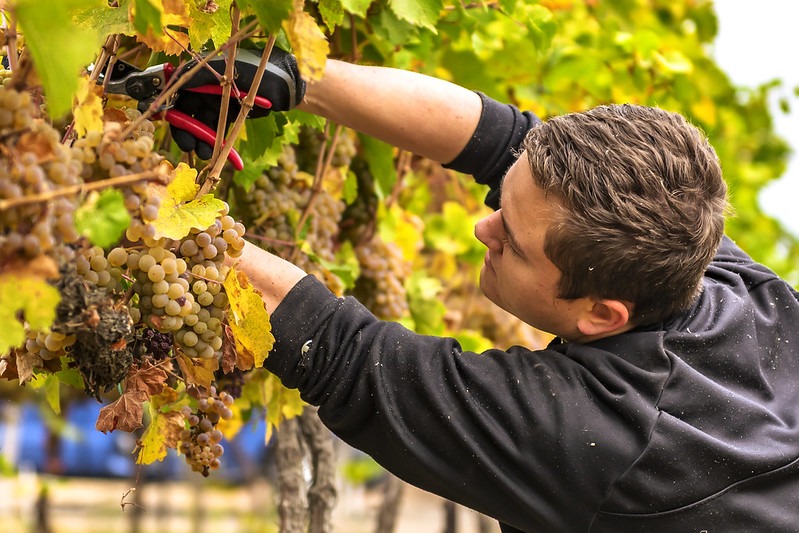WSU Tri-Cities Academic Research
WSU Tri-Cities is a leading research university, where both undergraduate and graduate students alike are active participants in developing real-world solutions for local, regional and global issues. Our students “learn while doing”, embracing a hands-on approach to learning experiences, while award-winning faculty and research partners offer mentorship and collaboration in our state-of-the-art laboratories. Regardless of your degree program, get involved with research!
Undergraduate Student Research
Undergraduate research opportunities are available in many fields of study and majors, where students work alongside world-class faculty to solve complex problems while discovering their career paths.
Graduate Student Research
WSU Tri-Cities prioritizes collaboration with faculty and industry to enhance research and career opportunities for graduate students.
I feel prepared to go out into the industry, and I’ve had a great experience at WSU Tri-Cities. It has exposed me to a wide range of research skills… and design and the use of analytical tools.
- Charity Maosah, food science student
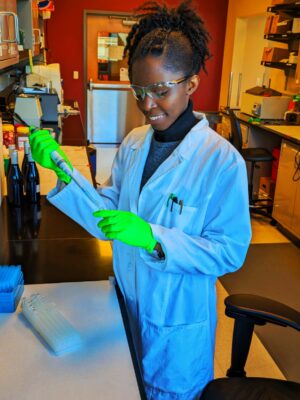
Energy Research and Innovation
WSU Tri-Cities is building on a legacy of energy innovation and the region’s commitment to advancing energy service and solutions. Explore a range of climate and energy topics to meet the needs of local communities and become a part of a growing energy workforce.
Institute for Northwest Energy Futures
The Institute for Northwest Energy Futures (INEF) is a new research center addressing the increasing demands for resilient, affordable, and available low-carbon electricity and transportation fuels. By assisting local energy stakeholders with research and analytics, INEF can better understand and manage the interrelationship between emerging clean, net-zero emission energy sources and technologies and the impacts on current energy systems, the economy, natural resources, and public policy.
Cougar Energy Ambassador Network
WSU Tri-Cities’ Empowering the Future Energy Workforce plan includes the development of an energy and environment certificate that will prepare students to join the next generation of energy leaders and thinkers. For students interested in the energy transition, the Cougar Energy Ambassador Network (CEAN) incorporates student research/innovation teams (“incubators”) working with faculty and industry mentors to address local challenges related to energy and the environment and their impact on communities.
Research Partnerships
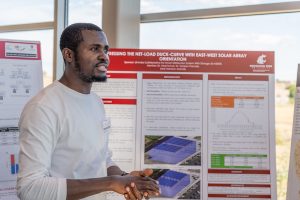
PNNL
WSU’s partnership with the Pacific Northwest National Laboratory (PNNL) incorporates joint institutes: Advanced Grid (Pullman), and Bioproducts (Tri-Cities). Each institute provides students a front row seat to science and technology in areas that are critical for the nation and the Northwest.
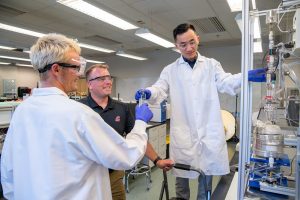
BSEL
The Bioproducts, Sciences, and Engineering Laboratory (BSEL) is a partnership between WSU and PNNL located on the WSU Tri-Cities campus. The lab advances research in non-energy products to promote energy sustainability, focusing on biofuels, biochemicals, biomaterials, and bioprocesses. Learn from and work alongside scientists and researchers who are among the best in their field.
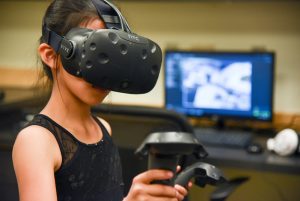
SIMIAN Lab
The Simulation and Integrated Media for Instruction Assessment and Neurocognition (SIMIAN) lab seeks to understand all aspects of human learning across the lifespan. Students experience unique ways to address critical research questions in education and learning.
Prosser Irrigated Agriculture Research and Extension Center
The Prosser Irrigated Agriculture Research and Extension Center (IAREC) brings together faculty research scientists and extension specialists, graduate students, and technical staff to conduct multidisciplinary research on irrigated agricultural commodities and production systems. Uniquely positioned to collaborate across the WSU system, the research programs benefit agriculture and ag-based industries in Washington state and the world.
Wine Science
Located in the heart of Washington wine country, WSU Tri-Cities houses the Ste. Michelle Wine Estates Wine Sciences Center, considered one of the most technologically advanced wine science centers in the world. It features laboratories and classrooms, a research and teaching winery, a two-acre vineyard, and greenhouses to train technical personnel. Learn alongside internationally recognized faculty in a state-of-the-art research facility that supports the region’s winemakers and grape growers.
